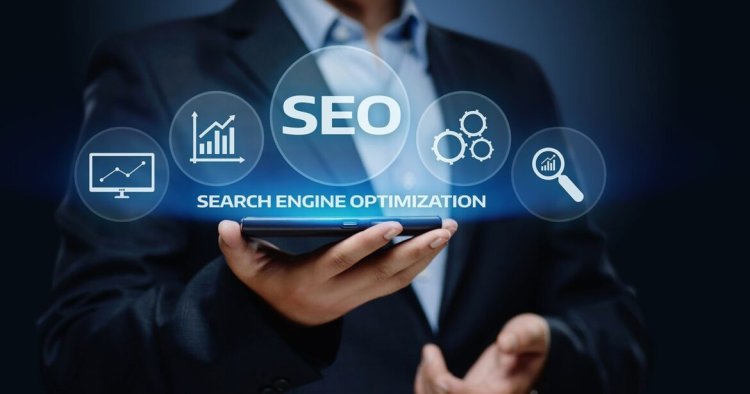SEO vs. PPC – Which is Better for Your Business Growth
Share this Post to earn Money ( Upto ₹100 per 1000 Views )

In the ever-evolving landscape of digital marketing, businesses face the perpetual challenge of choosing the most effective strategies to boost their online presence and drive growth. Search Engine Optimization (SEO) and Pay-Per-Click (PPC) advertising are two prominent methods, each with its unique advantages and considerations. This article explores the dynamics of SEO and PPC, weighing the pros and cons of each to help businesses make informed decisions for optimal growth.
Understanding SEO
Search Engine Optimization is the practice of optimizing a website to rank higher on search engine result pages (SERPs) organically. This involves enhancing various aspects of a website, such as content, keywords, and user experience, to align with search engine algorithms.
Pros of SEO:
Cost-Effective Long-Term Strategy:
SEO is often considered a cost-effective long-term strategy compared to PPC. Once your website achieves a high ranking, the traffic generated is essentially free, leading to sustained visibility without continuous advertising costs.
Credibility and Trust:
Organic search results are perceived as more credible and trustworthy by users. High rankings signal to potential customers that your website is authoritative and relevant, contributing to a positive brand image.
Sustainable Growth:
As SEO focuses on improving the overall quality of a website, the benefits extend beyond just search engine rankings. A well-optimized site provides a better user experience, which can lead to increased customer satisfaction and loyalty.
Cons of SEO:
Time-Consuming:
SEO is not an instant solution; it takes time to see results. Building authority and climbing up the search rankings can take months or even years, depending on the competitiveness of the industry.
Algorithm Changes:
Search engines frequently update their algorithms, impacting the ranking of websites. Keeping up with these changes and adjusting your strategy accordingly is crucial for maintaining SEO success.
Understanding PPC
Pay-per-click advertising is a model in which advertisers pay a fee each time their ad is clicked. These ads appear at the top or bottom of search engine result pages and are labeled as "sponsored."
Pros of PPC:
Immediate Visibility:
PPC provides instant visibility for your business. Once your campaign is set up, your ads can appear at the top of SERPs, driving immediate traffic to your website.
Control and Flexibility:
PPC campaigns offer precise control over budget, targeting, and ad creatives. This flexibility allows businesses to tailor their campaigns based on specific goals, demographics, and geographic locations.
Measurable ROI:
PPC provides detailed analytics and insights, allowing businesses to track the performance of their campaigns in real time. This makes it easier to measure the return on investment (ROI) and make data-driven decisions.
Drawbacks of PPC
While PPC advertising might yield immediate benefits, there is a potential for cost accumulation, particularly in highly competitive markets. Cost per click (CPC) may go up over time, and visibility must be maintained by ongoing expenditure.
Reliance on the Budget:
The money allotted to the campaign has a direct impact on the exposure that PPC offers. The advertisements stop running after the budget is depleted, which might cause a sharp decline in website visitors.
SEO vs. PPC – Which is Better for Your Business?
A phase of Operations:
The decision between SEO and PPC might be influenced by the stage of your organization. SEO may be given priority over PPC for new organizations looking for instant exposure, while PPC may be a better choice for established companies hoping for long-term growth.
Considering the Budget:
The choice between SEO and PPC is mostly influenced by budget. PPC can be the better option if you're on a tight budget and need results right away. But, SEO might wind up being a more affordable choice in the long run if you can tolerate a longer investment period with postponed rewards.
Competition for Keywords:
One important consideration is the degree of competition in your sector for pertinent keywords. While SEO could be a more practical and long-term strategy in less competitive sectors, PPC might give a speedy means to get top ranks in more competitive marketplaces.
Objectives for Brand Awareness:
SEO could be a better option if increasing brand recognition and credibility is your main objective. Over time, organic search results are perceived as more reliable and can enhance a brand's reputation.
Analytics and Conversion Tracking: Take into account your capacity to monitor and evaluate the results of your campaigns. PPC could be a better option if instantaneous insights and comprehensive data are essential. Even if SEO has long-term advantages, its effects might happen more gradually and are difficult to precisely trace to
Conclusion
In the ever-changing world of digital marketing, there is no universally applicable solution to the issue of which is better for business expansion: PPC or SEO. Each strategy's efficacy is contingent upon several variables, such as industry competitiveness, financial restraints, and corporate objectives.
Using a well-rounded strategy that incorporates PPC and SEO may frequently produce the best outcomes. A comprehensive digital marketing campaign that blends the immediate results of PPC with the steady, organic development offered by SEO may be created by utilizing the advantages of each technique. To find the best combination for long-term success in the internet space, organizations must ultimately thoroughly evaluate their circumstances and goals.














